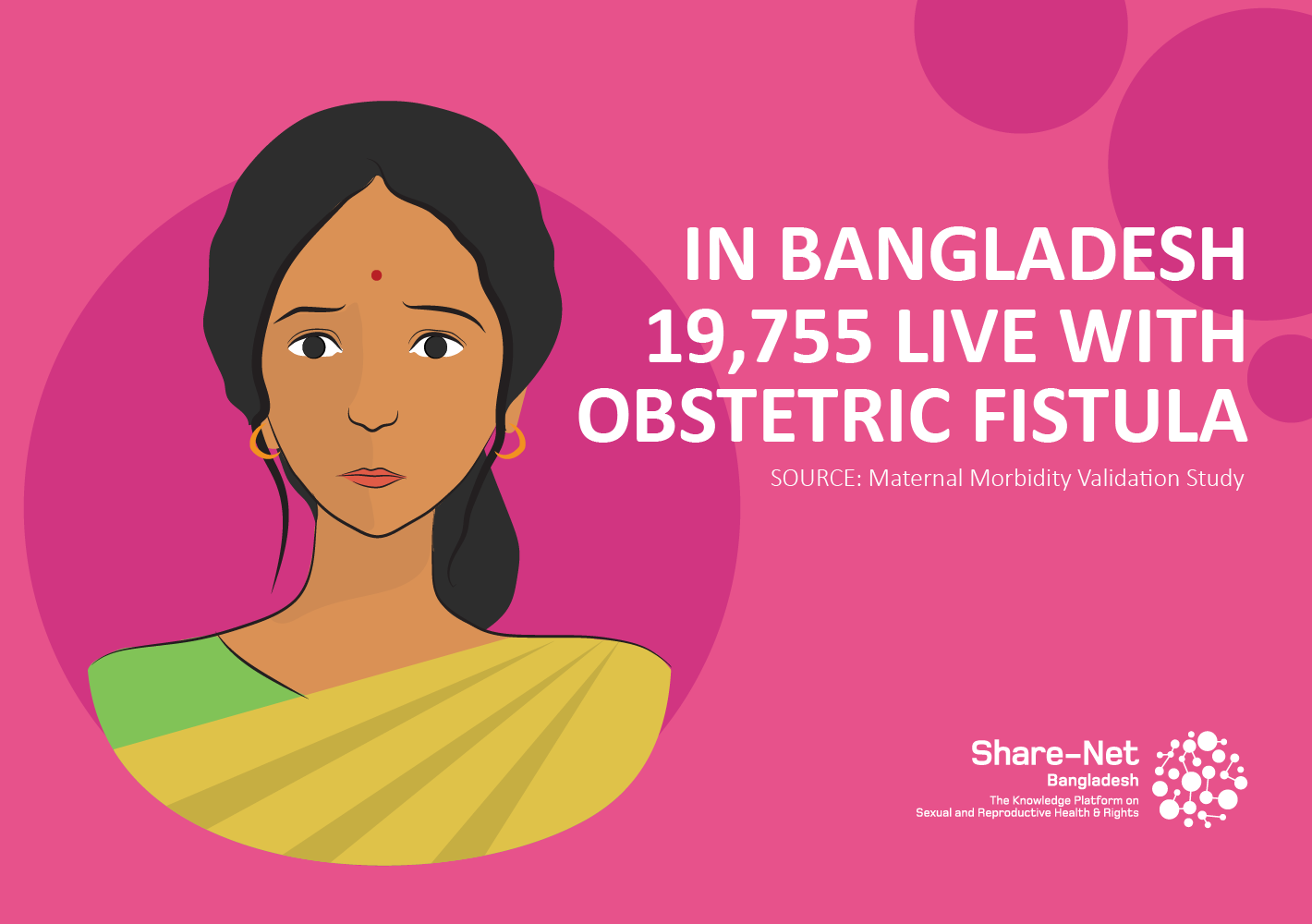19,755 Women live with Obstetric Fistula in Bangladesh
When a cavity forms, connecting two organs or an organ and another structure, it is called a fistula. When this cavity occurs between the vagina and bladder or rectum, it is called obstetric fistula. This disables a woman from having control over her bowels, emitting an odour, causing her shame and embarrassment.
Obstetric fistula can occur due to various reasons like abdominal surgeries or infection. 90% of fistula cases occur among women in Bangladesh due to childbirth-related issues such as obstructed labor, birth by unskilled attendants and teenage/early pregnancy. Women with obstetric fistula have to undergo discrimination from her society along with physical pain and discomfort. They are ridiculed and isolated by society because of their smell.
This condition is more prevalent in poverty-stricken areas where women could not afford professional medical care, and delivery of babies is carried out by unskilled birth attendants. When a woman gets into obstructed labour for days without any kind of access to have delivery through the Caesarian section, the pressure of the baby’s head against the mother’s pelvis causes blood supply towards soft tissues of the mother’s bladder, rectum and vagina to cut off, injuring the tissue which soon rots away causing a hole or a fistula. The hole can occur between the vagina and rectum, causing her to lose control over urination. The hole can also occur between the vagina and bladder, causing her to lose control of her bowels. In a report titled “Situation Analysis of Obstetric Fistula in Bangladesh”, which is the first attempt by UNFPA (United Nations Population Fund) to find out the situation of obstetric fistula in Bangladesh, it is mentioned that ‘many fistula sufferers are abandoned by their husbands, forced out of their homes, ostracized by family and friends and even disdained by health workers, who consider them ‘unclean’.
The risks of obstetric fistula increase when girls as young as 13, 14 or even 17 get pregnant. This happens when teenage girls get pregnant as a result of child marriage. Child marriage is closely connected with sexual and reproductive health of girls, and strong steps must be taken to eradicate this evil.
According to Maternal Morbidity Study by USAID and DfID, ‘the national prevalence for obstetric fistula in Bangladesh is 0.42 per 1,000 women with at least one birth. The study also estimated that approximately 19,755 women live with obstetric fistula and two-thirds of them are between the ages 15 and 49.’
Obstetric fistula is reversible, which means it can be treated, but many women are not aware of the treatment, or perhaps could not get access to treatment because of the cost. Prevention is possible by carrying out awareness programs via media and other means. For women who are already suffering from fistula, psychological counseling must be done to repair emotional damage.



